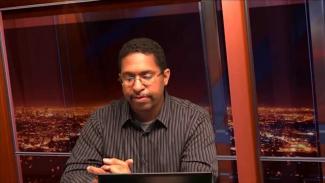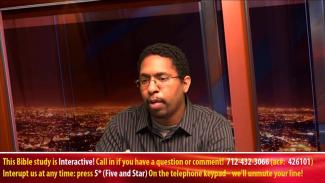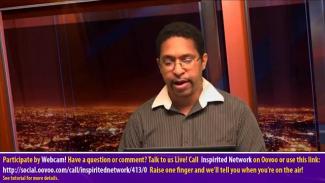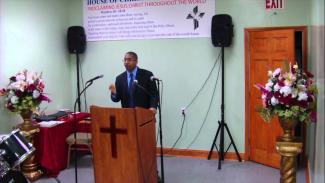What do we know about Paul before his call on the road to Damascus? What kind of person was he? What can we learn about God's willingness to save the worst sinners from the story of Saul's conversion to the Apostle Paul? How did the early Christians at first respond to Paul's conversion story? Are we any different today with people who have Paul's background? There is much we can learn from Paul's story as we seek to make disciples of men today. Paul's story is a story of hope for the undeserving and those who have a dark past in which they have made the most terrible mistakes.
Topic: Bible Characters
To see more broadcasts select show names, a year, or all video media.This week we discuss Philip the evangelist. But is this Philip different from other Philips in the Bible? How can we know for sure? What can we learn about mission work from what the Bible says about this Philip? Why was Philip chosen to serve as a deacon? What qualities did he have that made him stand out? What events later lead to his success as an evangelist? What can we learn from this as Christians today? What does the prophetic ministry of Philip's daughters say about Philip? What might this mean for those called to ministry today?
What can we learn from Peter's outreach to the gentiles? How did it contrast from Paul's? What can we learn from the story of Cornelius and the conversion of his friends and family? What important lessons did Jews of the early church have to learn? What might that mean for the church today? Does culture or race matter when it comes to salvation? This week as we explore these lessons we'll look at the stories of early gentile converts to Christianity.
In the story of Namaan and his leprosy, who was the unlikely missionary? What can we learn about salvation and outreach from this example? Why does Elisha have Namaan dip in the Jordan River 7 times? How does this story portray faith, obedience, and transformation? What did being saved by grace mean for Namaan and how did he respond to God's grace? What are the prerequisites for seeing the mighty works of God? This week we explore the little that is said about an unlikely missionary that had a huge impact on Namaan and his encounter with Elisha.
What can we learn from Abraham's experience? As the first Biblical missionary, Abraham's journey tells us many things about how he witnessed for God through his life and through many of the challenges he faced. Abraham is known as the father of faith, yet was he always a champion of faith? Did Abraham have weaknesses as people do today? If so, how did Abraham learn to trust God over time? What lessons did Abraham learn that are still important lessons for us to learn today? Why was Abraham commanded to leave his father's household in the first place?
What is the difference between an apostle and a disciple? What is the job of an apostle? Do apostles and disciples still exist today? What kinds of people did Jesus choose to be apostles and disciples? What does it take to become one of them? Did Jesus choose religious leaders or common people? Were the people Jesus chose always qualified by human standards? This week we explore discipleship from Luke's perspective and what implications discipleship has on Christians today.
This quarter we begin our study on the book of Luke. What does this book have to say about the first advent of Jesus Christ? How does Luke approach this subject? What can we learn from the two miracle births of John the Baptist and Jesus? As the angel came to bring the news, how were the reactions of both sets of parents different? Who exactly was Luke and what makes him a credible source of information? Did Luke witness everything? If not, how do we know his account can be trusted? Why was the book of Luke written? This week we tackle many of these subjects.
What does Proverbs say about humility and pride? What wisdom is there in being humble? This particular set of proverbs was contributed by Agur, who scholars know very limited information about. What wisdom does Agur have for family relationships? How should children relate to their parents when they get old? In what ways do the words used in these Proverbs connect with God's discussion with Job? What statements are made about God as Creator?
This week we begin studying the book of Proverbs written by Solomon. What is the meaning of these wise sayings? Why did Solomon write them? Where did Solomon get his wisdom from? Is wisdom something to work for, or is it something given and received? What is the greatest source of wisdom and how can people obtain it today? Is there a difference between worldly wisdom and heavenly wisdom? As we begin our study on the book of Proverbs we will look at Solomon's call to wisdom and tackle many of these questions.
What were Jesus' brothers like? Did people in His household believe in His mission? What is the back story behind James? Which James wrote the book of James? Is there any way to be sure? How was the life of James transformed by Jesus? What message could that have for us today? Who was the Bishop of Jerusalem? This week we explore these fascinating mysteries delving into the life of James the Just.












